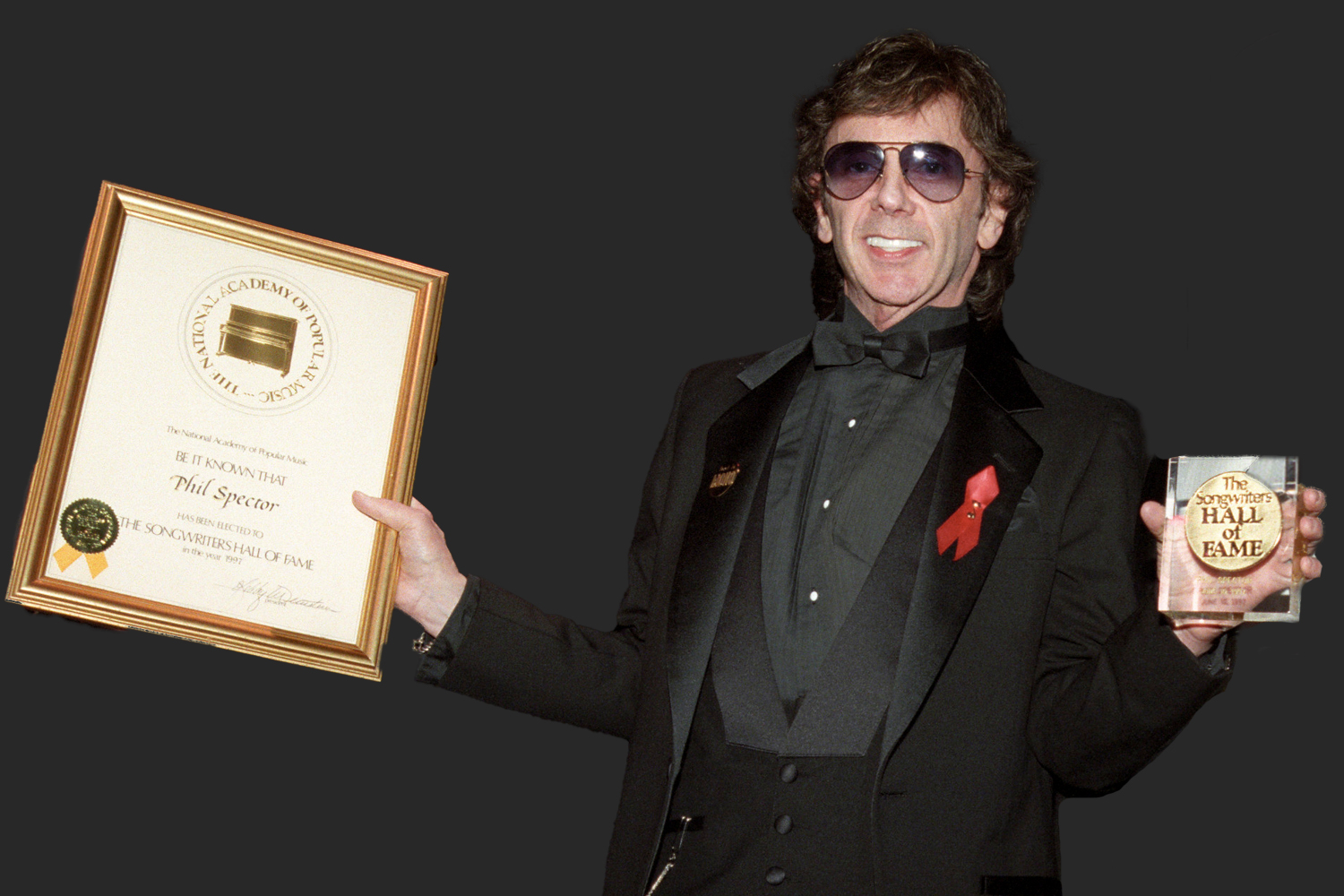The SHOF was saddened to learn of the passing of 1997 Inductee Phil Spector, a monumentally influential songwriter and producer whose “Wall of Sound” style revolutionized the way rock music was recorded in the early 1960's.
Born in the Bronx on December 26, 1939, Spector began his lifelong immersion in music by taking guitar lessons, hanging around the famous Gold Star studio to watch the producers working with the then-new process of "doubling" voices through multi-tracking reel-to-reel tape, and forming his first group called The Teddy Bears in 1958 with high school friends Marshall Lieb and Annette Kleinbard. Spector took the title of his first production, “To Know Him Is to Love Him,” from the inscription on his father’s gravestone. It was a Number One hit, but the group’s subsequent singles, as well as their sole album, The Teddy Bears Sing! flopped and the group quickly dissolved.
When Spector was 18, he caught the eye of veteran producer Lester Sill, who arranged for him to collaborate with Jerry Leiber and Mike Stoller, co-writing Ben E. King’s hit “Spanish Harlem.” In 1961, Spector and Sill formed Philles Records and the new Crystals’ first single, the million-selling “He’s a Rebel,” became Philles’ first Number One single.
Spector adopted what he famously referred to as “a Wagnerian approach to rock & roll,” calling the hit records he assembled in the Sixties for artists like the Ronettes, the Crystals, Darlene Love and the Righteous Brothers “little symphonies for the kids.” His productions were dense and orchestral, accumulating layer upon layer of guitars, horns, keyboards, strings and percussion, often with multiple instruments playing the same note in unison.
The songs he selected were dizzyingly romantic, typically written or co-written with the greatest of the Brill Building songwriters, and his classic recordings relied on the brilliant contributions of a set of musicians dubbed the Wrecking Crew, which included such unparalleled session men as guitarists Glen Campbell and Barney Kessel, pianist Leon Russell and drummer Hal Blaine – with Jack Nitzsche and Sonny Bono often arranging and overseeing the recordings. Spector created four top 10 hits in 1963: the Crystals’ “Da Doo Ron Ron” and “Then He Kissed Me,” Bob B. Soxx & the Blue Jeans’ “Zip-a-Dee-Doo-Dah” and, greatest of all, the Ronettes’ “Be My Baby,” showcasing the streetwise, seductive rasp of young singer named Veronica “Ronnie” Bennett. Drummer Hal Blaine’s four-beat intro to the Ronettes’ “Be My Baby” is one of the most distinctive kick offs to a song in rock & roll history.
Though Spector’s focus was on crafting 45 rpm singles, at the end of 1963 he released his only classic LP. A Christmas Gift for You From Philles Records, which featured all the label’s artists, and consisted largely of well-known Christmas songs, such as the Ronettes’ ecstatically reworked “Santa Claus Is Coming to Town.” The standout track, however, was a new song written by Spector, Jeff Barry and Ellie Greenwich: Darlene Love’s “Christmas (Baby Please Come Home),” which has become a holiday standard in its own right.
Spector had become rock & roll’s first superstar producer – “the first tycoon of teen” as a Tom Wolfe profile famously dubbed him. Spector held his own against the British Invasion of 1964, producing and writing even more hits for the Ronettes, and the following year, he turned his attention to a male duo called the Righteous Brothers. The group’s “You’ve Lost That Lovin’ Feeling,” co-written by Spector with SHOF inductee Barry Mann, sold over two million copies and became Philles’ third Number One hit.
In 1969, he released Sonny Charles and the Checkmates’ “Black Pearl,” a Number 13 hit, also producing John Lennon’s solo hit “Instant Karma!” and was given the task of creating an album out of the group’s abandoned Get Back sessions. The result was the Beatles final studio album, Let It Be.
Spector’s life was tumultuous and ultimately tragic, and in 2009 he was convicted for the murder of actress Lana Clarkson, for which he was serving a prison term of 19 years to life when he passed away on January 16, 2021.


